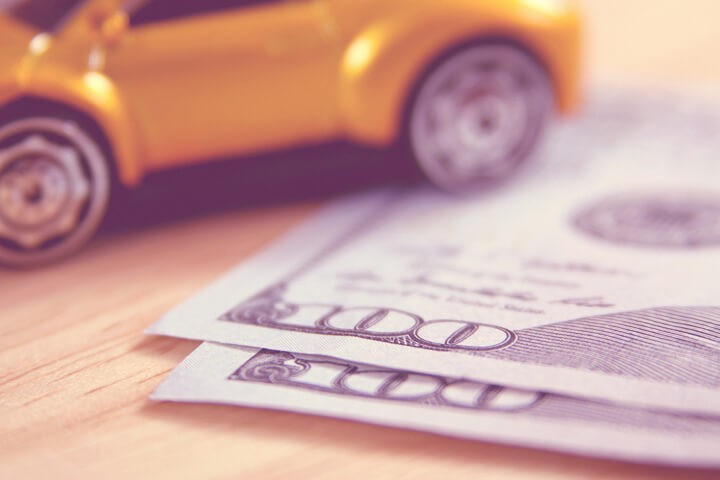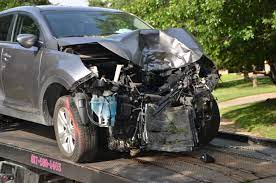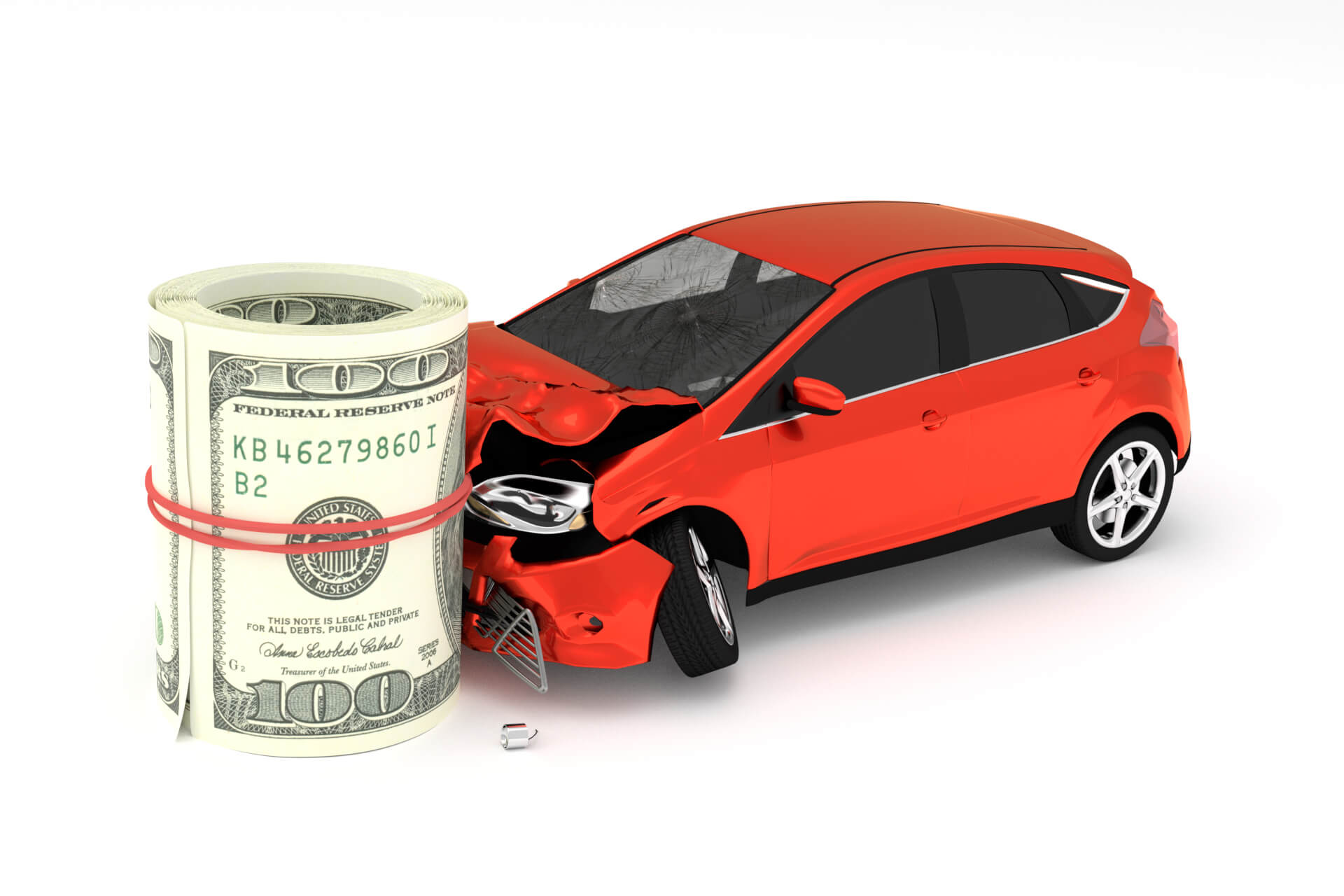Picture this: You’ve just experienced a car accident, and now you’re left with a wrecked car. You’re not sure whether it’s worth repairing or if you should just sell it and move on. In this blog post, we’ll guide you through the process of determining “how much can I get for my wrecked car” and explore various options for selling it. We’ll also discuss gap insurance and share tips on negotiating a higher payout for your wrecked car. So, buckle up and let’s dive in!
Key Takeaways
- Evaluate the market value and damage of your car to determine its worth.
- Consider various options for selling your wrecked car, including insurance claims, salvage yards, online platforms and private buyers.
- Research rights and consider an independent appraisal to negotiate a higher payout when selling a damaged vehicle.
Evaluating Your Wrecked Car’s Worth

Grasping your wrecked car’s worth is significant for your decision to either repair or sell it. It involves considering its market value and assessing the extent of the damage. When you are clear about your car’s worth, informed decisions can be made and there’s a chance to negotiate a better deal.
Market Value
Evaluating your car’s worth necessitates determining its market value. Reliable resources like Kelley Blue Book and NADAGuides.com can help you estimate your car’s value before the accident. These resources consider factors such as:
- Make
- Model
- Year
- Mileage
- Condition
- Location
- Market demand for less than perfect cars
While both tools are generally accepted as accurate and dependable, their values may vary due to different factors they take into account.
Familiarity with your car’s market value is vital while handling insurance claims. It aids in comprehending the actual cash value (ACV) of your car, the sum that the insurance company pays when your car is declared a total loss.
Assessing Damage

Assessing the sustained damage is another vital consideration when determining your wrecked car’s worth. The extent of damage directly affects the value of your car. For instance, if the car has been severely damaged in a collision, it can be assumed that 90% of its value is lost. If the car is totaled due to sustained light damage but cannot be certified, or if it is in good condition but does not run, it is likely that 30 to 50% of its value is lost.
To determine the value of your damaged car, insurance companies consider factors like:
- the year, make, model, mileage, and condition of the vehicle
- the auto body repair costs estimated by the claims adjuster
- the severity of the damage, which can be inferred from factors like airbag deployment
Airbags are designed to deploy in moderate to severe accidents to protect the occupants.
Options for Selling Your Wrecked Car
After ascertaining your wrecked car’s worth, numerous selling options are available for you. These include:
- Going through the insurance claims process
- Selling to salvage yards
- Using online platforms
- Finding private buyers
Each choice comes with its advantages and disadvantages, requiring careful consideration to make the most suitable decision for your circumstances.
Insurance Claims Process
The insurance claims process is a common option for dealing with a wrecked car after a car accident. The process involves an adjuster determining the actual cash value (ACV) of your car, which is the value of the car at the time of assessment, taking into account its depreciation and condition. The payout is based on the ACV and may be affected by factors like the car’s fair market value, any proceeds from selling the car to a scrapyard, and your insurance policy’s deductible.
The insurance claims process can prove convenient; however, comprehending your insurance policy and the factors that could influence your insurance claim payout is necessary. Ensure that the insurance pay you receive is fair and accurately reflects your car’s worth before accepting it.
Salvage Yards
Another alternative for selling your wrecked car is salvage yards. These establishments appraise the salvage value of your car based on factors like its state, make, model, and market demand for parts. However, the typical remuneration for a damaged car at a salvage yard is between $100 and $500, which might be lower than what you could get from other selling options.
On the bright side, some salvage yards may be open to price negotiation, particularly for more expensive items or if they recognize potential value in the parts or vehicle. To increase your chances of getting a better deal, contact multiple salvage yards and present an offer based on your estimation of fairness.
Online Platforms
Specialized services for buying totaled cars are offered by online platforms like Carmula . These services don’t consider the condition of the vehicle, making them a great option for selling your totaled car or junk car. These platforms can offer competitive prices for your wrecked car, often providing a more attractive deal than salvage yards. By partnering with licensed towers, recyclers, and salvage yards across the United States, they can provide instant cash quotes for total loss vehicles and free removal services.
The process of selling your wrecked car through online platforms is generally straightforward. You’ll need to provide information about your vehicle, receive and evaluate the offer, and if satisfied, accept the offer within a specified time frame.
Private Buyers
Selling your wrecked car to private buyers may also be a viable option. Private buyers might be interested in purchasing your car for parts or repair, potentially offering a higher price than other options. You can find private buyers through platforms like Carmula.
Awareness of legal considerations when dealing with private buyers is crucial. Some important factors to consider include:
- Accurate advertisement
- Disclosing salvage titles
- Protecting yourself from liability
- Preventing fraud
Research local laws and regulations as they may differ depending on your jurisdiction.
Understanding Gap Insurance and Its Benefits
Understanding gap insurance becomes vital, especially when dealing with a wrecked car. It covers the difference between the actual cash value of your car and the remaining balance on your car loan. This ensures that you don’t end up owing money after selling your wrecked car, providing financial security and peace of mind.
Gap insurance is particularly beneficial if you have a car loan with a high remaining balance or if your car’s value has depreciated significantly. By having gap insurance in place, you can avoid the unpleasant situation of making car payments on a vehicle you no longer possess. Additionally, comprehensive insurance can provide further insurance coverage for your vehicle.
Tips for Negotiating a Higher Payout for Your Wrecked Car
Being well-prepared and proactive is essential for increasing your chances of securing a higher payout for your wrecked car. This includes researching and documenting your car’s value, knowing your rights, and considering an independent appraisal.
Negotiating a better deal for your wrecked car is possible when you are well-informed and assertive.
Research and Document
Researching your car’s value using dependable resources like Kelley Blue Book and NADAGuides.com is crucial. Having a clear understanding of your car’s worth puts you in a stronger position when negotiating with insurance companies or potential buyers.
Additionally, document any upgrades or improvements made to the car as well as maintenance records, as these can help augment the value of your damaged car.
Know Your Rights
Understand your state’s total loss threshold and your insurance policy’s terms to ensure you’re being treated fairly during the claims process. Familiarize yourself with the fundamentals of how insurance companies appraise cars and the associated lingo. This knowledge will help you identify any discrepancies in the payout offer and give you the confidence to negotiate for a better deal.
Consider an Independent Appraisal
An independent appraisal can provide an unbiased assessment of your car’s value, giving you leverage during negotiations with your insurance company or potential buyers. Companies that offer independent appraisals for wrecked cars include:
- Auto Appraisal Group
- Collision Claims
- Auto Appraisal Network
- Total Loss Appraiser
By having an objective evaluation of your car’s worth, you can be more confident in negotiating a higher payout.
Repairing vs. Selling Your Wrecked Car

Your decision to repair or sell your wrecked car will ultimately hinge on factors such as the extent of the damage, the cost of repairs, and the potential payout from selling the car. Considering all options and consulting with professionals like mechanics or body shop experts is vital for making the most favorable decision for your circumstances.
Weigh the cost-benefit analysis of repairing versus selling your wrecked car, taking into account both financial and non-financial factors, such as safety and personal preferences. By thoroughly evaluating your options and seeking professional advice, you can make an informed decision that best suits your needs and circumstances.
Summary
In conclusion, understanding the worth of your wrecked car and exploring various selling options is crucial in making the best decision for your situation. By researching your car’s value, knowing your rights, and considering an independent appraisal, you can negotiate a higher payout for your wrecked car. Ultimately, the choice between repairing and selling your wrecked car depends on various factors, and consulting with professionals can help guide you to make the right decision. Always remember, knowledge is power, and being well-informed will put you in the driver’s seat when it comes to handling your wrecked car.
Frequently Asked Questions
How do I find the value of a wrecked car?
To find the value of a wrecked car, utilize an industry resource like Kelly Blue Book or NADA Used Car Guide to look up the retail and wholesale value and determine salvage value based on market value percentage set by the insurance company.
Can you ask for more money when your car is totaled?
You can negotiate for a higher amount when your car is totaled. Present evidence of its upgrades to prove its worth and you may be able to receive more money from the insurance company.
How do you calculate actual cash value?
To calculate actual cash value, one must subtract any depreciation from the replacement cost to obtain the final amount.
What does getting totalled mean?
Getting totalled means that an insurance company has declared your car unrepairable or the cost of repair is more than the value of the car. This typically happens after an inspection of the damaged vehicle.
What resources can help me determine my wrecked car’s market value?
Kelley Blue Book and NADAGuides.com can help you determine the market value of your wrecked car.





 Who We Are
Who We Are Coverage Area
Coverage Area Donate
Donate